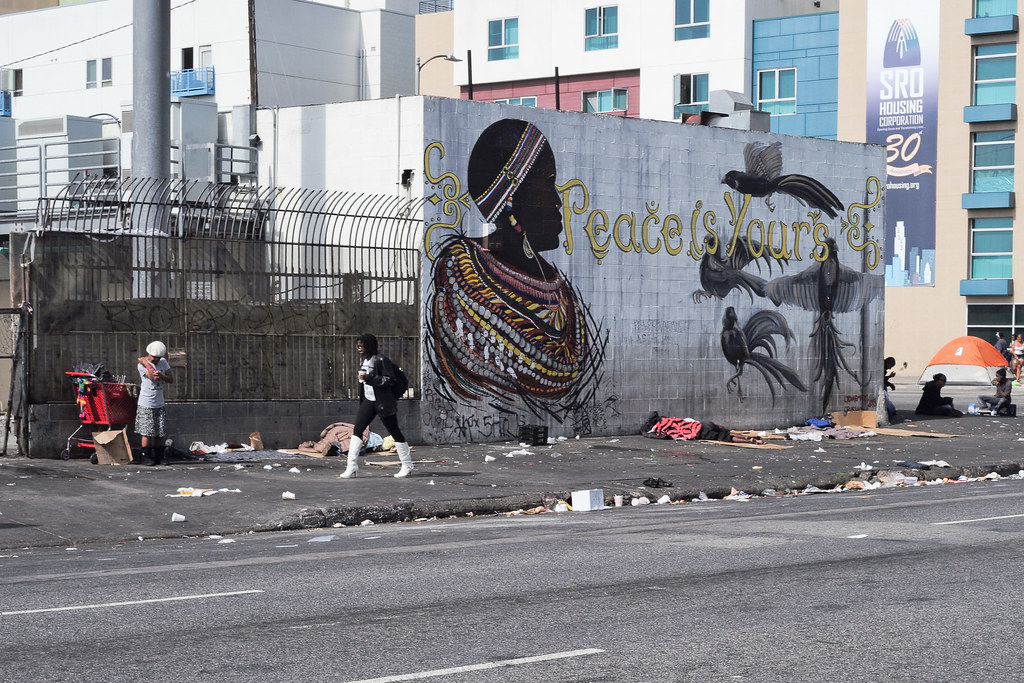
Skid Row morning (woman in white boots) [Downtown Los Angeles]: photo by Andrew Murr, 27 March 2016
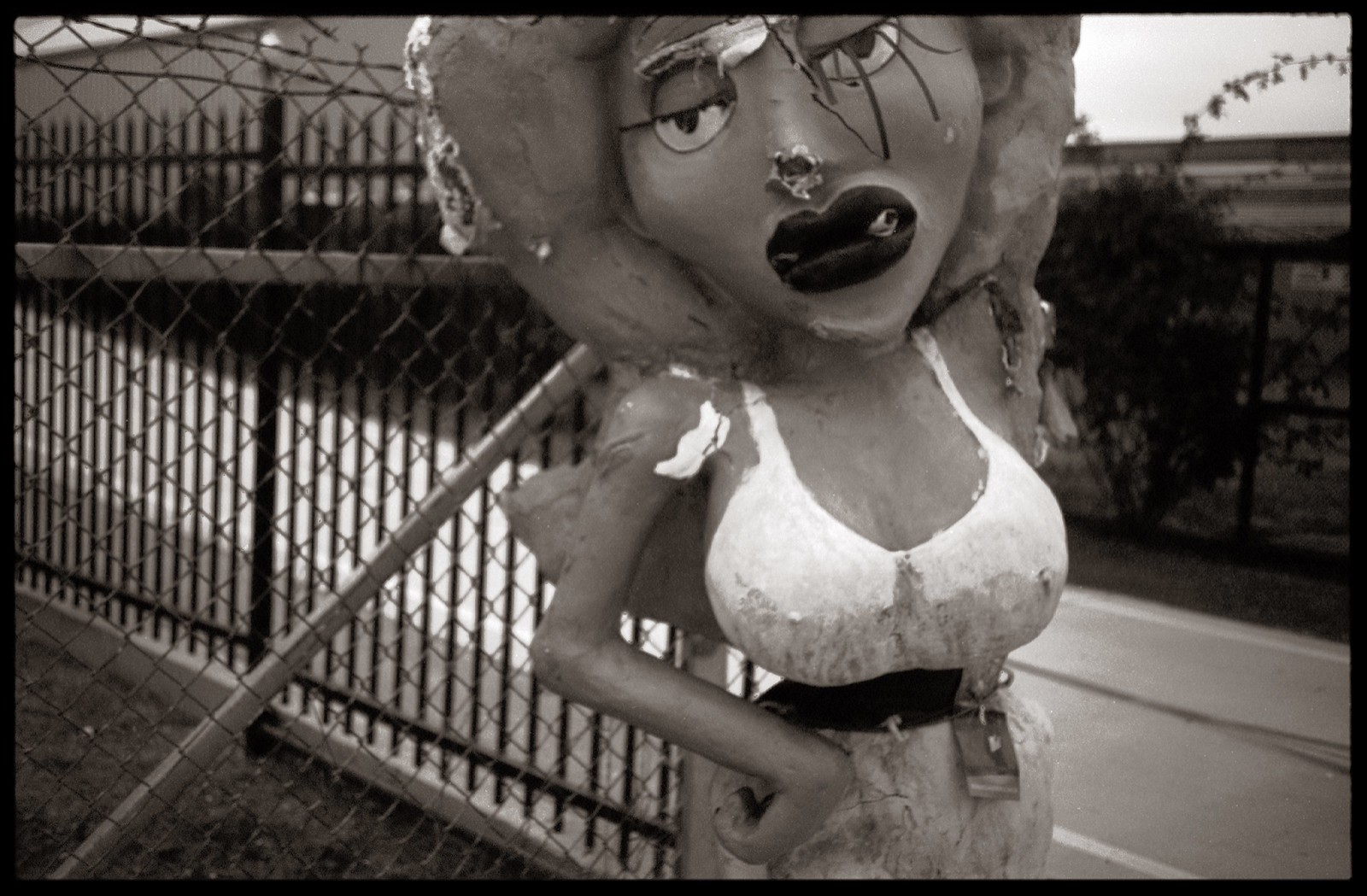
My kind of woman (San Leandro, California): photo by efo, 14 July 2016

My kind of woman (San Leandro, California): photo by efo, 14 July 2016
Pablo Neruda: Los nacimentos
Nunca recordaremos haber muerto.
Tanta paciencia
para ser tuvimos
anotando
los números, los días,
los años y los meses,
los cabellos, las bocas que besamos,
y aquel minuto de morir
lo dejamos sin anotación:
se lo damos a otro de recuerdo
o simplemente al agua,
al agua, al aire, al tiempo.
Ni de nacer tampoco
guardamos la memoria,
aunque importante y fresco fue ir naciendo:
y ahora no recuerdas ni un detalle,
no has guardado ni un ramo
de la primera luz.
Se sabe que nacemos.
Se sabe que en la sala
o en el bosque
o en el tugurio del barrio pesquero
o en los cañaverales crepitantes
hay un silencio extrañamente extraño,
un minuto solemne de madera
y una mujer se dispone a parir.
Se sabe que nacimos.
Pero de la profunda sacudida
de no ser a existir, a tener manos,
a ver, a tener ojos,
a comer y llorar y derramarse
y amar y amar y sufrir y sufrir,
de aquella transición o escalofrío
del contenido eléctrico que asume
un cuerpo más como una copa viva,
y de aquella mujer deshabitada,
la madre que allí queda con su sangre
y su desgarradora plenitud
y su fin y comienzo, y el desorden
que turba el pulso, el suelo, las frazadas,
hasta que todo se recoge y suma
un nudo más el hilo de la vida,
nada, no quedó nada en tu memoria
del mar bravío que elevó una ola
y derribó del árbol una manzana oscura.
No tienes más recuerdo que tu vida.
Pablo Neruda (1904-1973): Los nacimientos, from Plenos Poderes, 1962,
Divers and fishermen carry the image of the Virgin of Palm as a girl touches it at El Rinconcillo beach during the yearly Virgin of Palm maritime pilgrimage in Algeciras, Spain: photo by Pablo Blazquez Dominguez, 16 August 2016
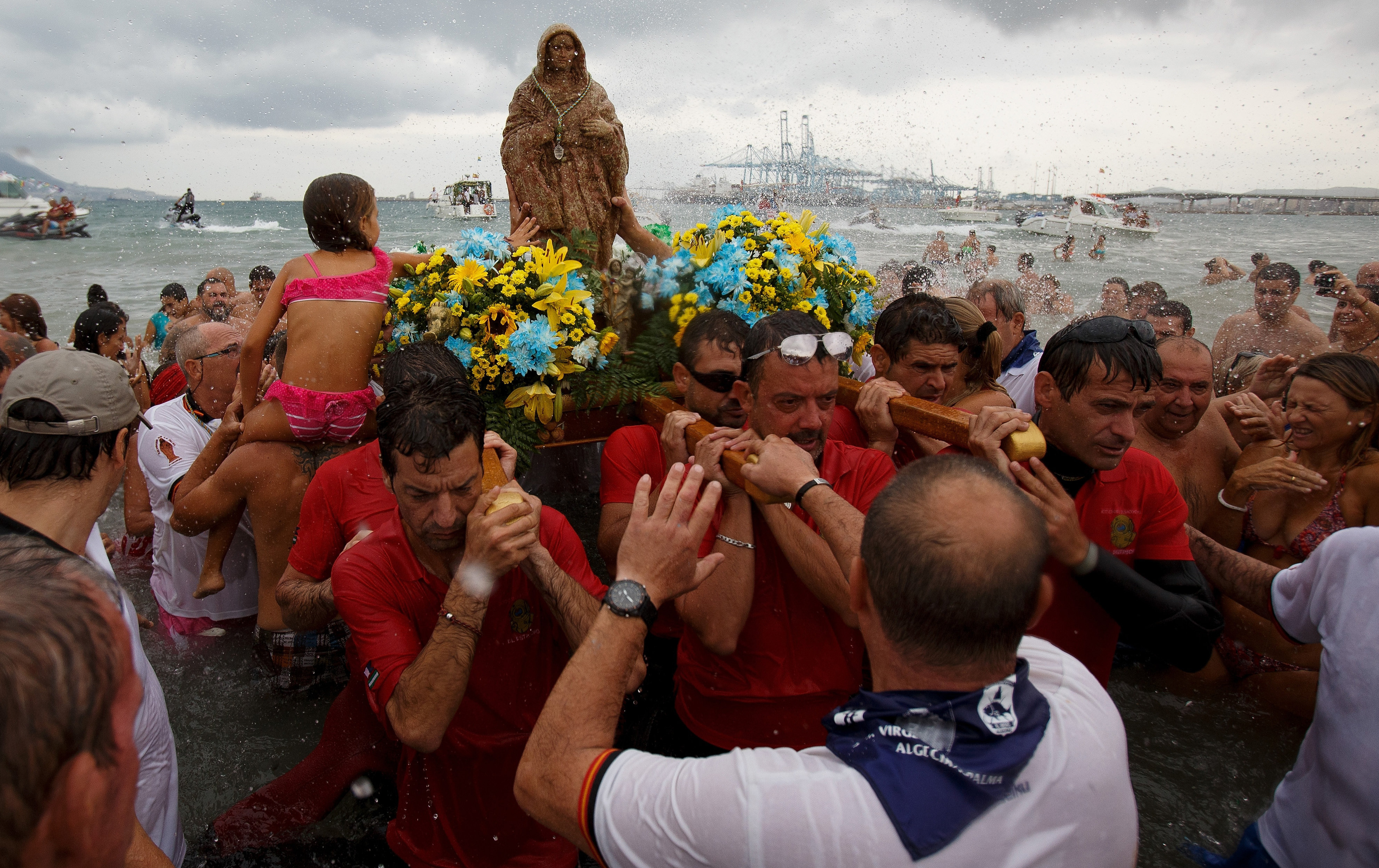
Divers and fishermen carry the image of the Virgin of Palm as a girl touches it at El Rinconcillo beach during the yearly Virgin of Palm maritime pilgrimage in Algeciras, Spain: photo by Pablo Blazquez Dominguez, 16 August 2016
Boys aboard an abandoned boat collect recyclable items through
polluted waters in front of fishing boats at Fish Harbor in Karachi,
Pakistan: photo by Akhtar Soomro/Reuters, 17 August 2016
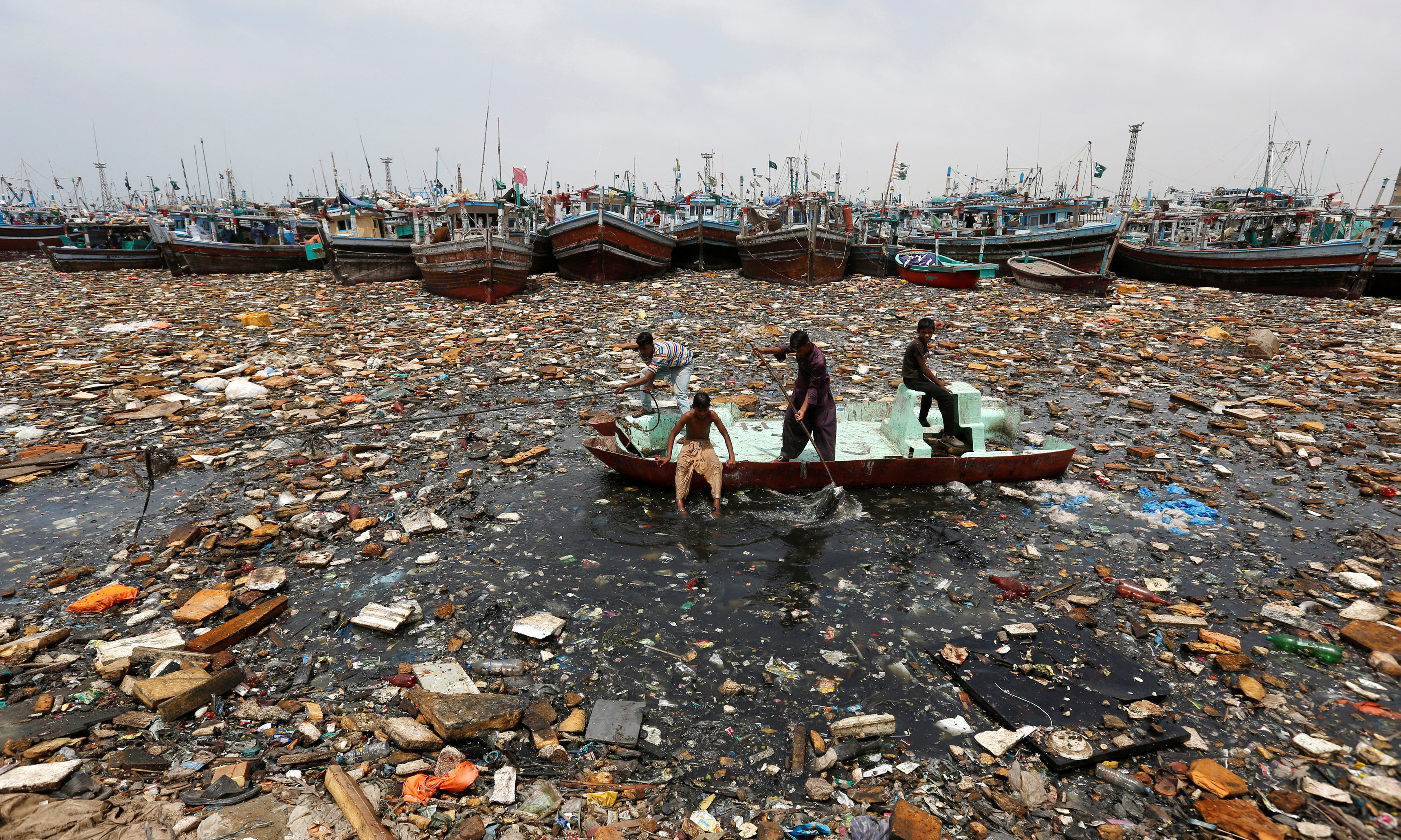
Boys aboard an abandoned boat collect recyclable items through polluted waters in front of fishing boats at Fish Harbor in Karachi, Pakistan: photo by Akhtar Soomro/Reuters, 17 August 2016
Births
We will never have any memory of dying.
We were so patient
about our being,
noting down
numbers, days,
years and months,
hair, and the mouths we kiss,
and that moment of dying
we let pass without a note --
we leave it to others as memory,
or we give it simply to water,
to water, to air, to time.
Nor do we even keep
the memory of being born,
although to come into being was tumultuous and new;
and now you don’t remember a single detail,
and haven’t kept even a trace
of your first light.
It’s well known that we are born.
It’s well known that in the room
or in the wood
or in the shelter in the fisherman’s quarter
or in the rustling canefields
there is a quite unusual silence,
a grave and wooden moment as
a woman prepares to give birth.
It’s well known that we were all born.
But of that abrupt translation
from not being to existing, to having hands,
to seeing, to having eyes,
to eating and weeping and overflowing
and loving and loving and suffering and suffering,
of that transition, that quivering
of an electric presence, raising up
one body more, like a living cup,
and of that woman left empty,
the mother who is left there in her blood
and her lacerated fullness,
and its end and its beginning, and disorder
tumbling the pulse, the floor, the covers,
till everything comes together and adds
one knot more to the thread of life,
nothing, nothing remains in your memory
of the savage sea which summoned up a wave
and plucked a shrouded apple from the tree.
The only thing you remember is your life.
We were so patient
about our being,
noting down
numbers, days,
years and months,
hair, and the mouths we kiss,
and that moment of dying
we let pass without a note --
we leave it to others as memory,
or we give it simply to water,
to water, to air, to time.
Nor do we even keep
the memory of being born,
although to come into being was tumultuous and new;
and now you don’t remember a single detail,
and haven’t kept even a trace
of your first light.
It’s well known that we are born.
It’s well known that in the room
or in the wood
or in the shelter in the fisherman’s quarter
or in the rustling canefields
there is a quite unusual silence,
a grave and wooden moment as
a woman prepares to give birth.
It’s well known that we were all born.
But of that abrupt translation
from not being to existing, to having hands,
to seeing, to having eyes,
to eating and weeping and overflowing
and loving and loving and suffering and suffering,
of that transition, that quivering
of an electric presence, raising up
one body more, like a living cup,
and of that woman left empty,
the mother who is left there in her blood
and her lacerated fullness,
and its end and its beginning, and disorder
tumbling the pulse, the floor, the covers,
till everything comes together and adds
one knot more to the thread of life,
nothing, nothing remains in your memory
of the savage sea which summoned up a wave
and plucked a shrouded apple from the tree.
The only thing you remember is your life.
Pablo Neruda (1904-1973): Los nacimientos (Births), from Plenos Poderes (Fully Empowered), 1962, translated by Alastair Reid
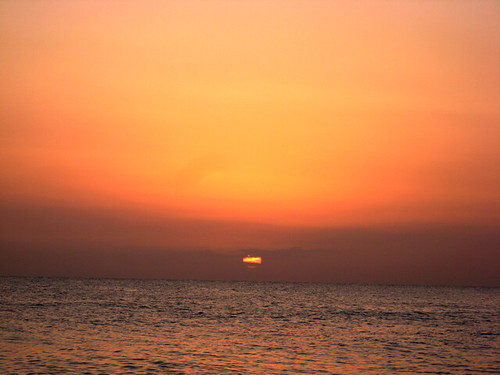
KHAZAR 1
طلوع خورشد در دریای خزر:
photo by ali_pourian, 25 March 2009
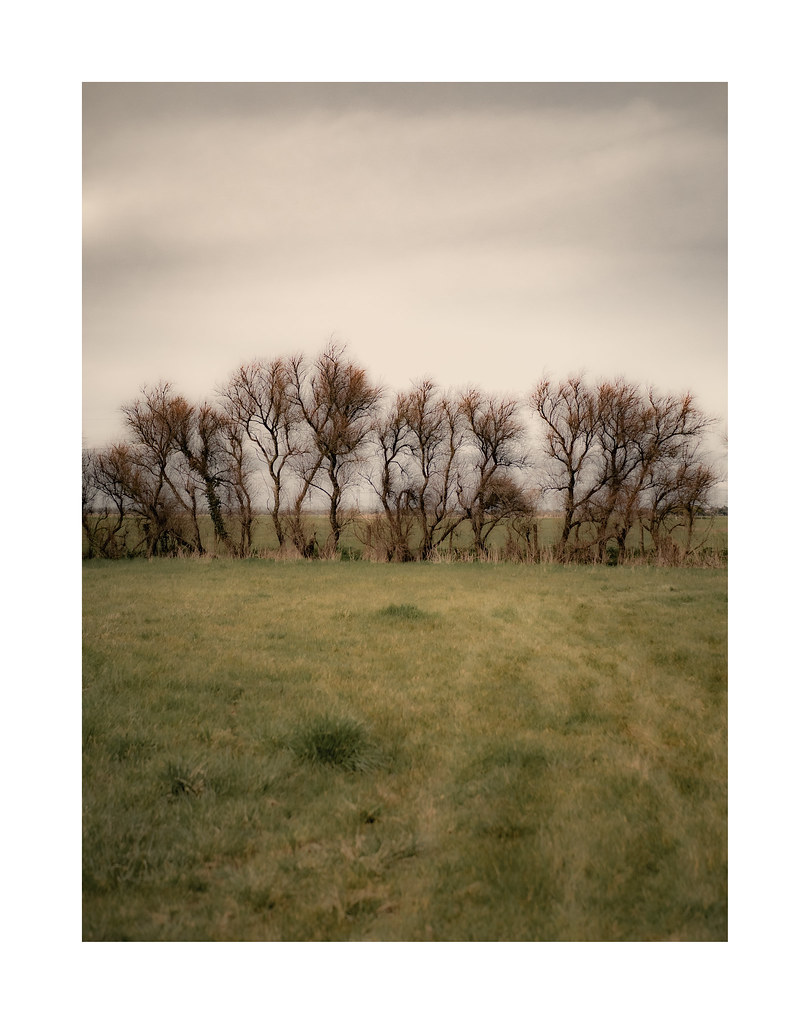
" Le sondable, le tarmiser en mots ": photo by lautrehidalgo, 30 March 2018

Times Square, 1949: photo by Michael Ryerson, 7 April 2018

Times Square, 1949: photo by Michael Ryerson, 7 April 2018

Times Square, 1949: photo by Michael Ryerson, 7 April 2018
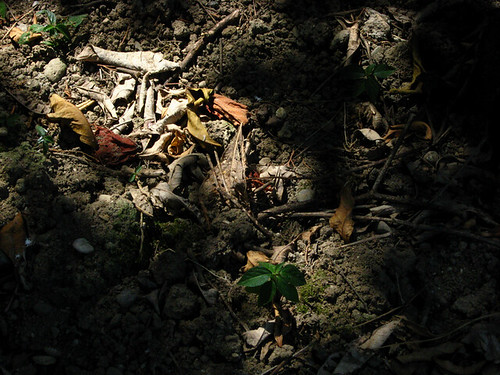
IRAN SHOMAL 1
این عکس مربوط به شمال ایران است و بطور کاملاً طبیعی
photo by ali_pourian, 22 March 2009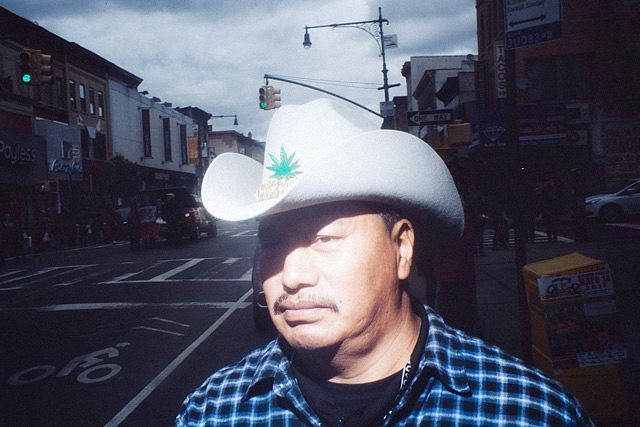
Brooklyn 2017 / IMG_7026: photo by dirtyharrry, 20 March 2009

Broadway at Times Square, 1949: photo by Michael Ryerson, 7 April 2018

Broadway at Times Square, 1949: photo by Michael Ryerson, 7 April 2018

Broadway at Times Square, 1949: photo by Michael Ryerson, 7 April 2018
هنوز هم در تهران روح طبیعت زنده است و نفس می کشد.
گاهی باید با دقت به اطرافمان نگاه کنیم تا زندگی را احساس کنیم.
photo by ali_pourian, 2 January 2009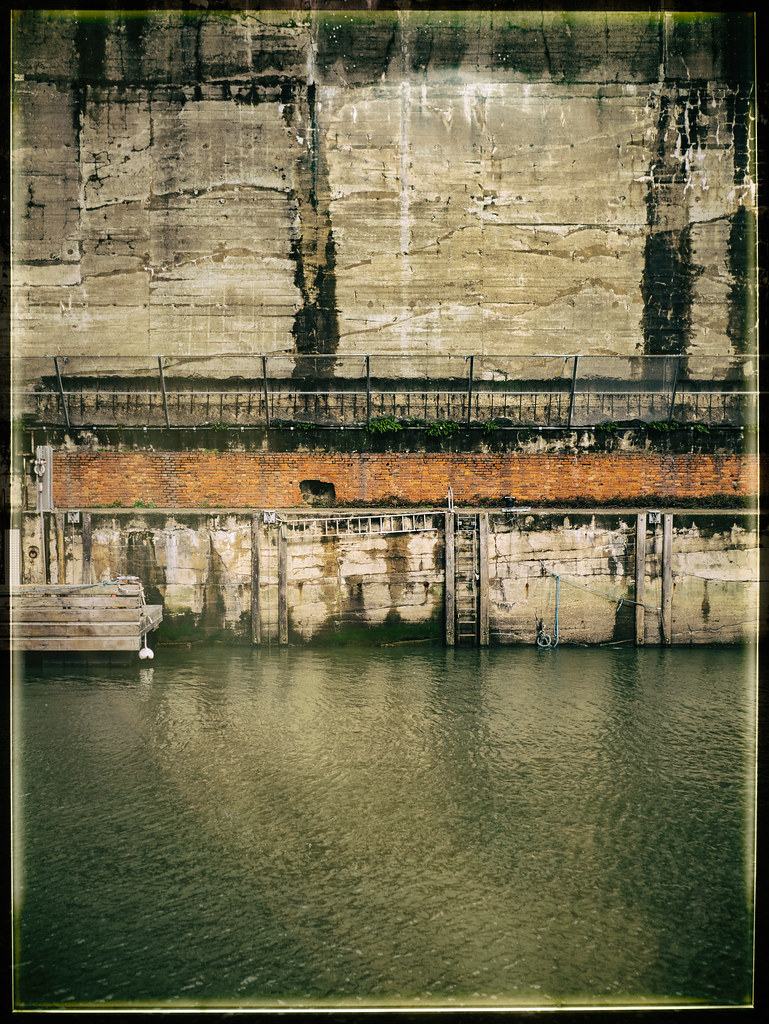
paysage : collines, chemin de fer, echelles et mare crisum: photo lautrehidalgo, 7 April 2018

Looking north on Broadway at Times Square, 1949 (detail): photo by Michael Ryerson, 6 April 2018

Looking north on Broadway at Times Square, 1949 (detail): photo by Michael Ryerson, 6 April 2018
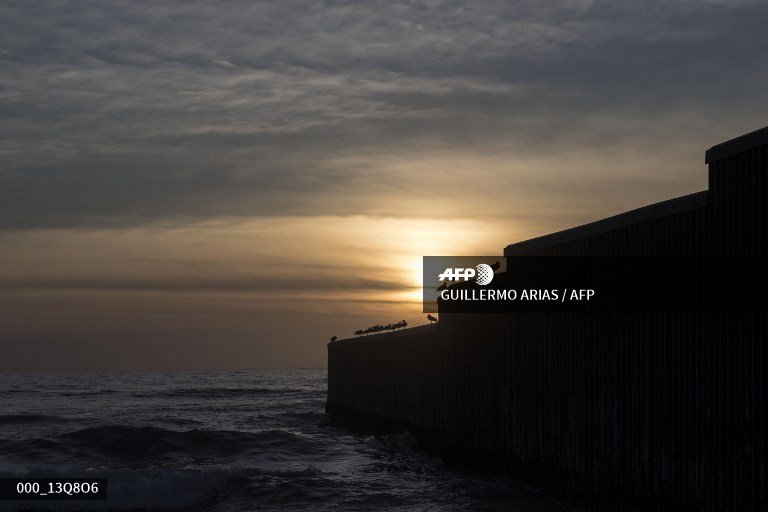
#haveaniceday #sunset on the Mexican side of the US - Mexico border fence, at Playas de Tijuana, northwestern Mexico. Photo @ProyectoElCerco: image via Aurelia BAILLY @AureliuaBAILLY, 9 April 2018
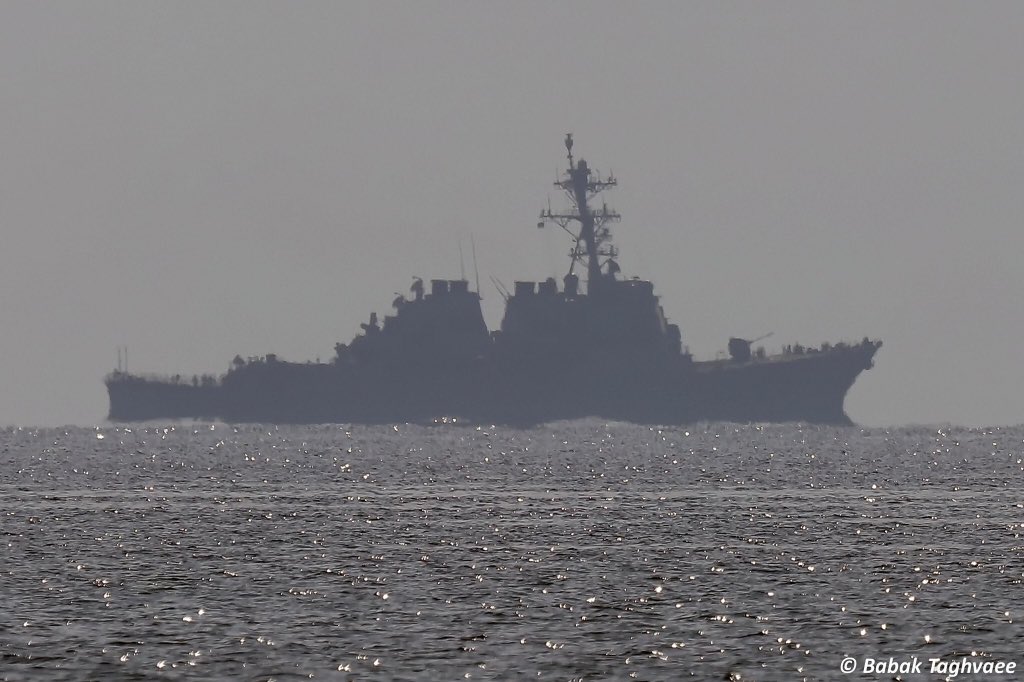
ספינת
הטילים USS Donald Cook עזבה את נמל לרנקה בקפריסין ונמצאת 100 קמ מחוף
טרטוס בסוריה. על הסיפון 56 טילי טומהוק. האם זו תיהיה התגובה האמריקאית
למתקפה הכימית.: image via nir dvori @ndvori,, 9 April 2018

אחרי
שמכרה לקרואטיה ישראל מציעה מטוסי אף 16 מיושנים שברשותה מדגם A/B
לקולומביה. אמורים להחליף את מטוסי הכפיר שמכרה לה ישראל בשנות ה-90: image via nir dvori @ndvori,, 9 April 2018

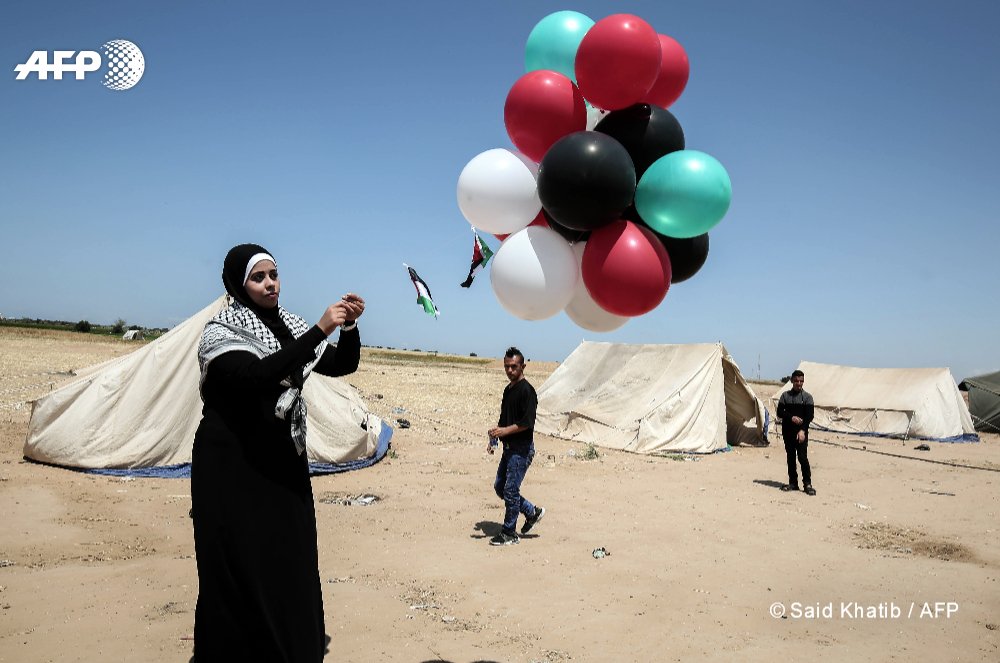
#Gaza : Les protestations à la frontière israélo-palestinienne à la Une sur Photo @saidkhatib / #AFP @AFPphoto: image via Jade Montane1 @jmontane_AFP 1.48 AM 10 April 2018
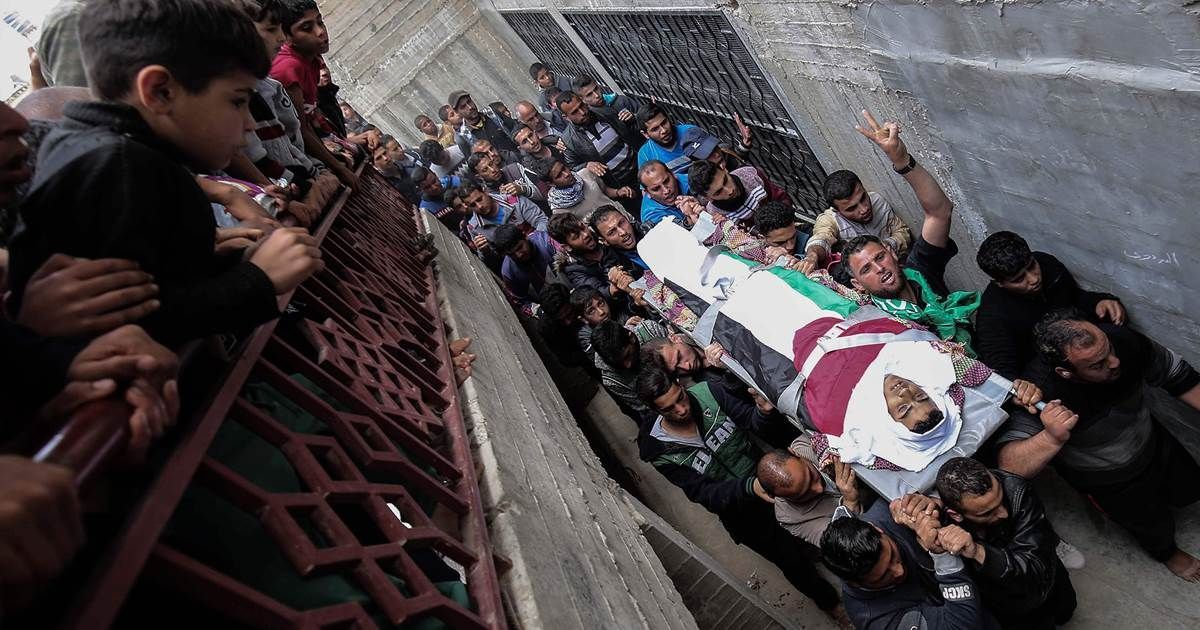
Thousands
of Palestinians in Gaza prepare to continue protests for the right of
return despite Israeli gunfire - "I am here to restore my lost rights. I
want to return to Palestine.": image via The IMEU @theIMEU, 5 April 2018
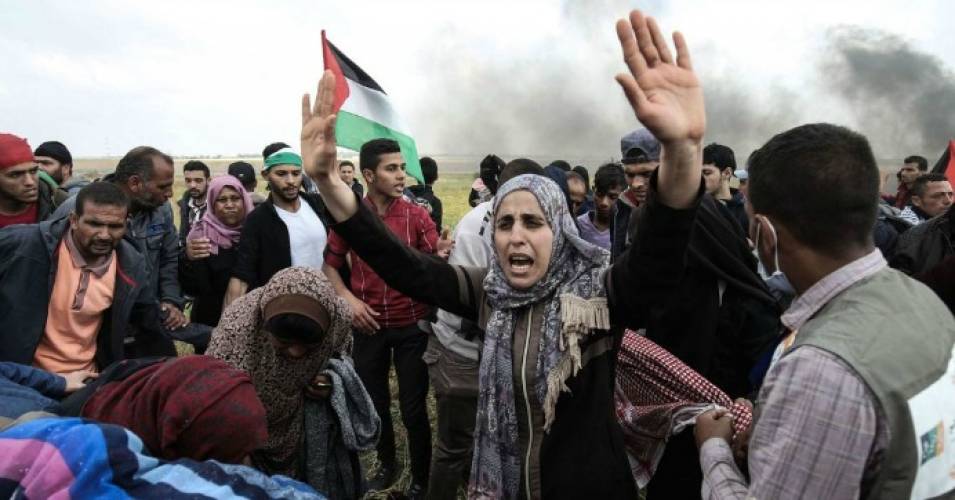
"The
high number of deaths and injuries [in Gaza] was the foreseeable
consequence of granting [Israeli] soldiers leeway to use lethal force
outside of life-threatening situations in violation of international
norms"--Human Rights Watch: image via The IMEU @theIMEU, 6 April 2018
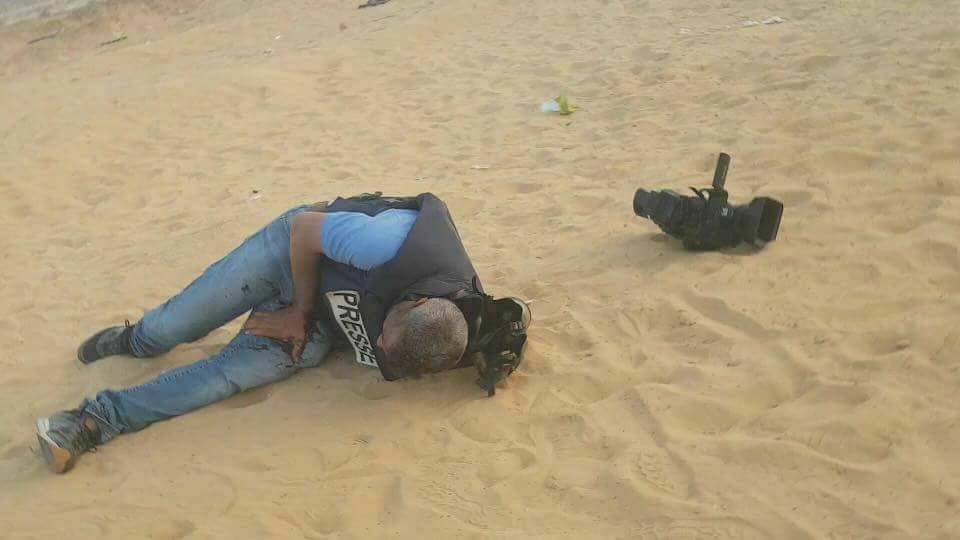
Palestinian
photojournalist Khalil Abu Adhara was shot by Israeli forces during the
Great Return March in Gaza today. Israeli forces are actively firing
explosive bullets at Palestinian protesters.: image via The IMEU @theIMEU, 6 April 2018
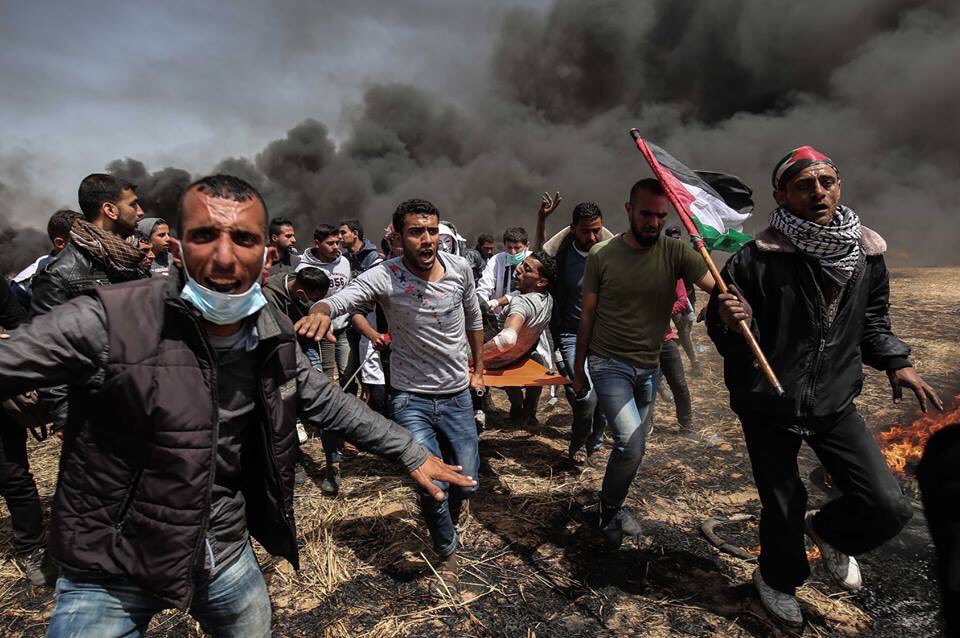
فلسطينين يحملون مصاب اثناء المواجهات في خانيونس جنوب قطاع An injured #Palestinian
protestor is carried by fellow demonstrators during clashes with
Israeli security forces following a demonstration calling for the right
to return in #gaza: image via said khatib @saidkhatib, 9 April 2018

Mourners
hold back a relative during the funeral for Palestinian Hamdan Abu
Amshah, who was killed along the Gaza-Israel border: image via Reuters Pictures @reuterpictures, 7 April 2018


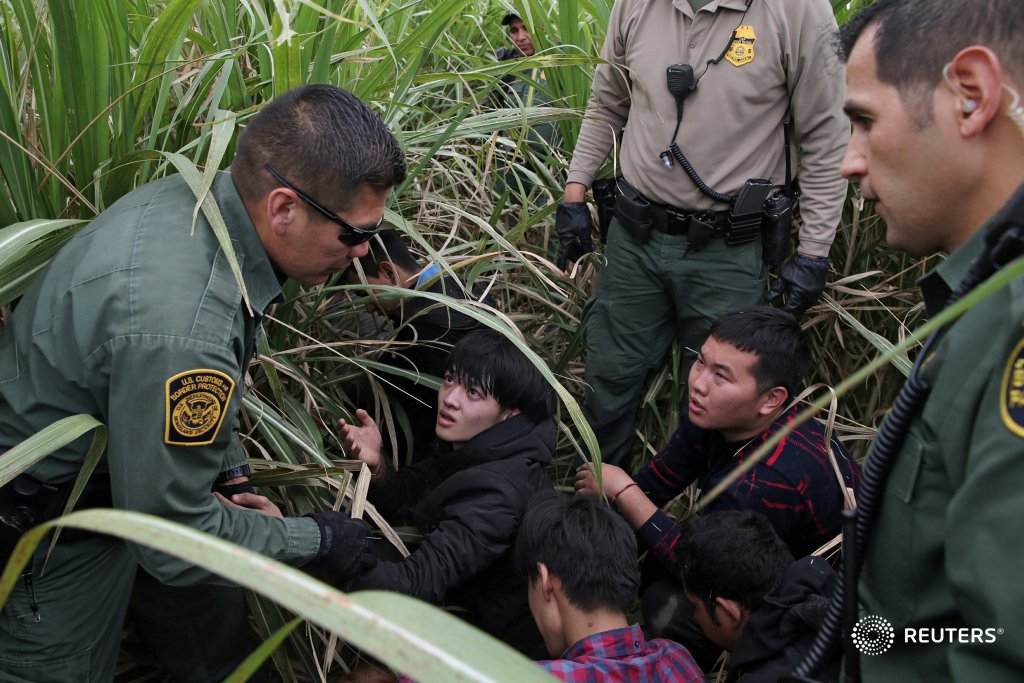
U.S.
Border Patrol agent Sergio Ramirez apprehends immigrants who illegally
crossed the border from Mexico into Texas @Lelliottphoto: image via Reuters Pictures @reuterspictures, 7 April 2018
We will never have any memory of dying.
The only thing you remember is your life.







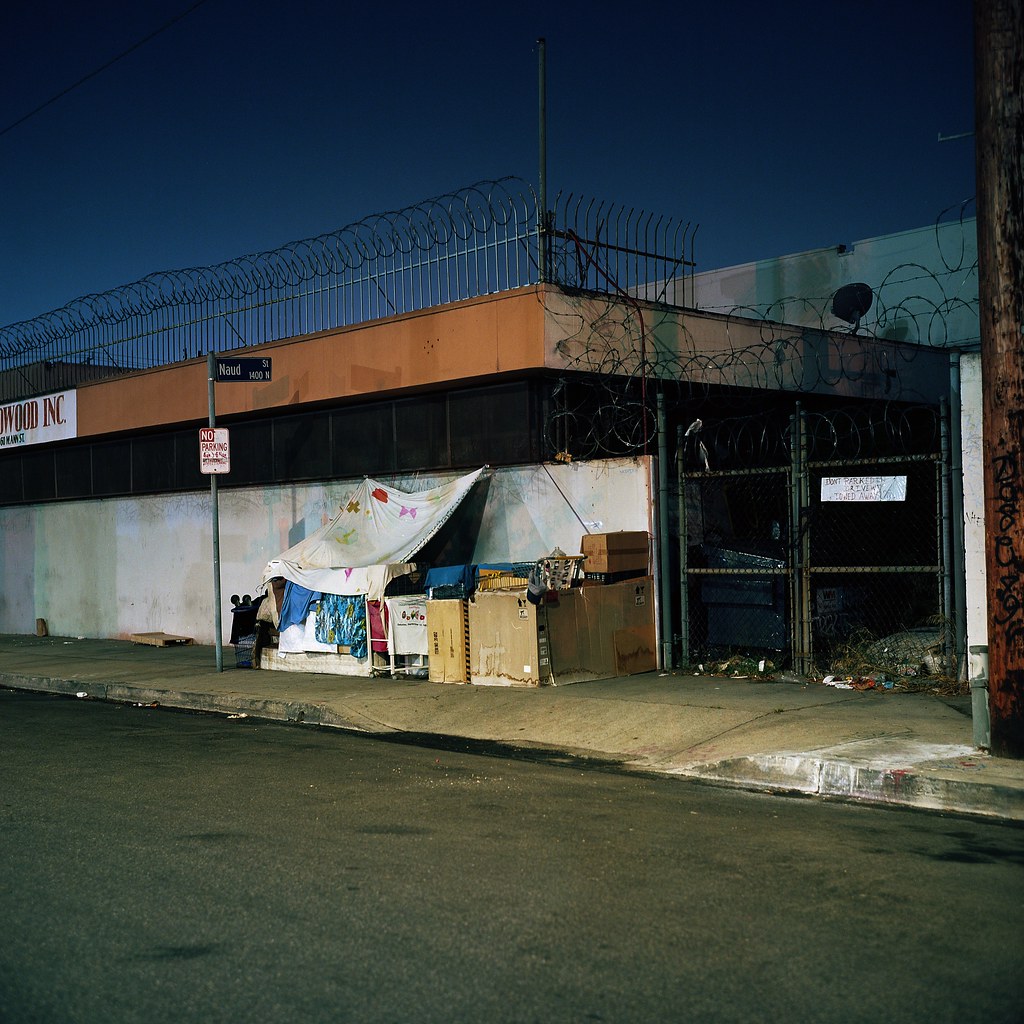
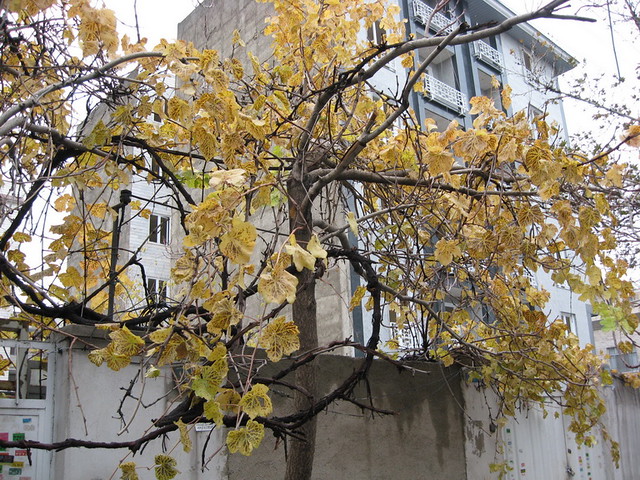






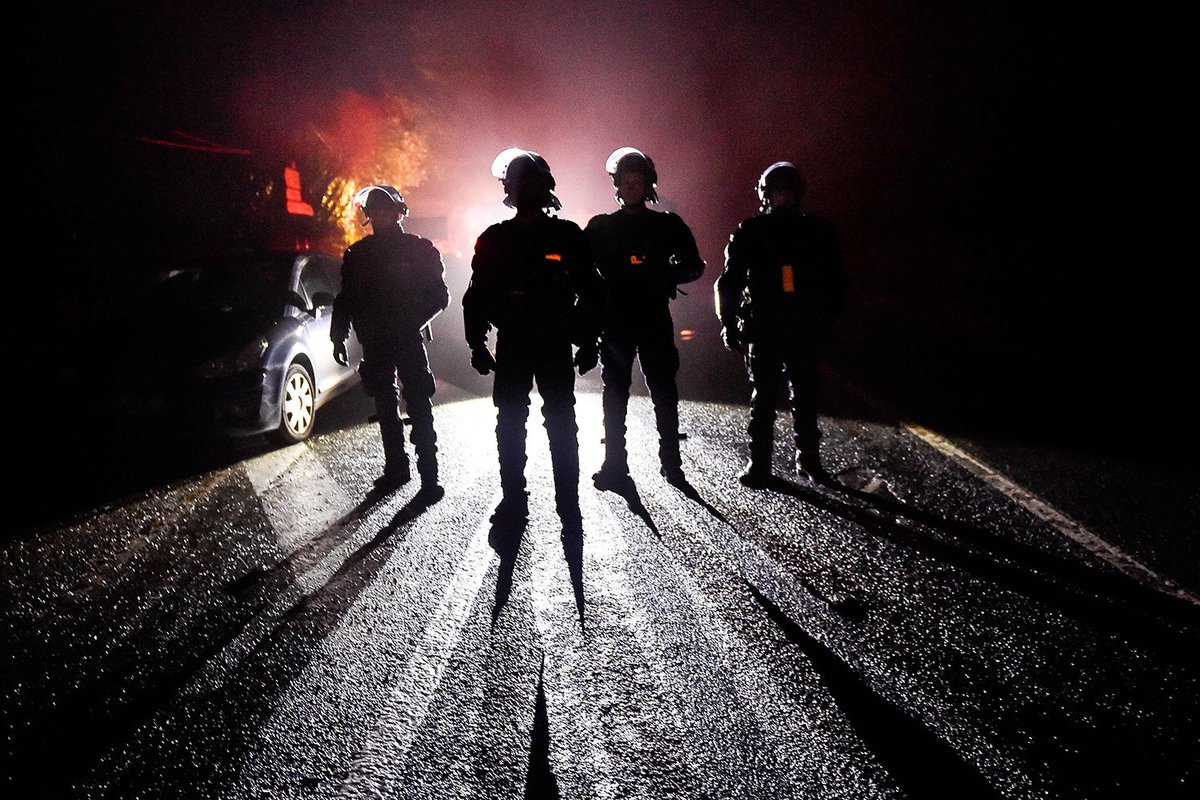






¡qué hermoso poema de Neruda...no lo conocía...!!
ReplyDeletegracias querido sandra ¡Qué gran poema, qué gran poeta! En un tiempo de caminar muerto, leer a Neruda es traerse a la vida, con toda la alegría, el dolor...
ReplyDeleteLos lectores de habla inglesa saben poco sobre Neruda, aunque siempre hay una gran cantidad de chismes falsos... but with great writers, that's just how it is!!
__
"Neruda contrató un barco llamado Winnipeg que llegó a Valparaíso, Chile, día 3 de septiembre de 1939, con 2.200 inmigrantes españoles provenientes desde Francia. Los inmigrantes eran refugiados republicanos o comunistas de la Guerra Civil Española que habían huido de España por la llegada de Francisco Franco al poder..."
__
Neruda fue asesinado (via Proceso, 2006)
ReplyDeleteTodo estaba dispuesto para que el poeta y premio Nobel de Literatura Pablo Neruda se exiliara en México. Había viajado de su casa en Isla Negra a Santiago de Chile y un avión enviado por el gobierno mexicano estaba listo para recogerlo. Sin embargo, tuvo que ser internado en la clínica Santa María. Avisó por teléfono a su mujer, Matilde Urrutia, y a su asistente Manuel Araya que un médico le había puesto una inyección en el estómago. Unas horas después murió. Araya –quien estuvo al lado del poeta en sus últimos días– cuenta a Proceso un secreto que lo ahoga: el poeta “fue asesinado”.
VALPARAÍSO, CHILE, 12 de mayo (apro).- El poeta chileno Pablo Neruda “supo a las cuatro de la madrugada (del 11 de septiembre de 1973) que había un golpe de Estado. Se enteró a través de una radio argentina que captaba por onda corta. Ésta informaba que la marina se había sublevado en Valparaíso.
“Trató de comunicarse a Santiago, pero fue imposible. El teléfono estaba fuera de servicio. Recién como a las nueve de la mañana confirmamos que el golpe se había concretado. (…) Ese 11 de septiembre fue un día caótico y amargo porque no sabíamos qué iba a pasar con Chile y con nosotros.”
Manuel Araya Osorio habla de Neruda con la familiaridad de quien ha compartido momentos cruciales con un personaje histórico. Y sí. Fue asistente del poeta desde noviembre de 1972 –cuando regresó de Francia– hasta su muerte el 23 de septiembre de 1973.
El corresponsal se reunió con este personaje el pasado 24 de abril en el puerto de San Antonio. La entrevista se llevó a cabo en la casa del dirigente de los pescadores artesanales chilenos Cosme Caracciolo, a quien Araya le pidió ayuda para develar un secreto que lo ahogaba: “Lo único que quiero antes de morir es que el mundo sepa la verdad, que Pablo Neruda fue asesinado”, asegura a Proceso.
Sólo el diario El Líder, de San Antonio, dio cuenta parcial de su versión el 26 de junio de 2004. Pero no trascendió por la poca influencia de este medio.
Araya afirma que siempre ha querido que se haga justicia. Cuenta que el 1 de mayo de 1974 le propuso a Matilde Urrutia, viuda de Neruda, aclarar esa muerte. Ambos fueron testigos de sus últimas horas: durmieron, comieron y convivieron en la misma habitación a partir del golpe del 11 de septiembre de 1973 y hasta la muerte del poeta, 12 días después, en la clínica Santa María de Santiago.
Pero Araya afirma que Matilde –quien murió en enero de 1985– no quiso tomar acción alguna para fincar eventuales responsabilidades. Según él, Urrutia le dijo: “Si inicio un juicio me van a quitar todos los bienes”. Araya cuenta que en otra ocasión tuvieron una discusión que marcó un quiebre final en su relación con la viuda. “Me dijo que lo que había pasado era cosa de ella y no mía, porque yo ya había terminado de laborar con Pablo, ya no era trabajador y no teníamos nada que ver”.
“Neruda quería que cuando muriera, la casa de Isla Negra quedara para los mineros del carbón (…) Pero la fundación (Pablo Neruda) se apropió de su obra y no ha concretado ninguno de sus sueños. A ellos (los directivos de la fundación) sólo les interesa el dinero”, espeta.
[Neruda fue asesinado - cont.]
ReplyDeleteAfirma que hace dos años le entregó a Jaime Pinos, entonces director de la Casa Museo de Isla Negra, de la fundación, un relato sobre los últimos días del poeta. “Pero no han hecho nada con esa información, ni siquiera la han dado a conocer. No quieren que la verdad se sepa (…) Nunca me han dado la palabra en los actos que organizan ni siquiera en las conmemoraciones de su muerte”.
Araya proviene de una familia de campesinos de la hacienda La Marquesa, cerca de San Antonio. Cuando tenía 14 años fue acogido en Santiago por la dirigente comunista Julieta Campusano, quien le dio trato de ahijado.
Este vínculo le ayudó, pues Campusano llegó a ser senadora y la mujer más influyente del Partido Comunista, y gestionó que Araya recibiera una preparación especial en seguridad e inteligencia, entre otras materias. Araya escaló rápido. Fue mensajero personal de Allende antes de fungir como principal asistente de Neruda.
Araya, quien hacía de chofer, mensajero y encargado de seguridad de Neruda, acepta que el autor de Canto general tenía cáncer de próstata, pero no cree que esa enfermedad lo matara. Asegura que dicho padecimiento “estaba controlado” y que Neruda “gozaba de buena salud, con los achaques propios de una persona de 69 años”.
Neruda, un hombre comprometido con sus ideas que vivió intensamente y como dices hay gran controversia en relación a su vida y a su muerte.....un gran poeta ...también escribió en prosa el libro "Confieso que he vivido" ¡ muy interesante ! ...gracias por tus palabras Tom.
ReplyDeleteBTW while as Neruda says it's unlikely anybody remembers being born, the curious fact is, death comes and goes, one can die and then be brought back, as happened to me six times in one night. And you do remember bits.
ReplyDeleteWhen I was hit by a car and left for dead in the street in a pool of my own blood, in shock, with a broken neck and half my head gone, six years ago last week, the Fatal Accident Squad (all the king's emergency personnel) was called, and in the ensuing fun ride through deep Oakland to the county hospital and Trauma Unit...
The extremely helpful woman paramedic who held my hand all the way at 80 mph w siren roaring and warned me to do everything I could to stay conscious = alive during that next bump in the road...
"Bump coming... OK hold on..."
BUMP
She'd made that trip enough times to be aware of all the bumps in advance. There were six bumps. In. Out. Alive. Dead. Alive...
Anyhow long story short, I'm still annoying the living yet a while longer, and what I learned was very simple.
You're dead, you're brought back to life, you're aware of the return...
Saying to self, O well, that wasn't so bad, a relief really, thank god it's over with at last...
Then alive again, vast disappointment ("hey where's my Oscar! who stole it! Joel you said you'd hold it you asshole!!"), saying to self, O fuck me! Gotta go through the whole damn thing again. Sigh, groan & c.
Now I can't get around at all anymore but when I still could, now and then a cop will be checking me out...
"Can I help you officer?"
"Uh, I was there."
"Oh, where?"
"THERE. When that call goes out, everybody comes..."
"... to take a look?"
Sheepish nod, affirmative.
Then, always the same bottom line:
"You're a lucky man."
Cue little language games...
"You know officer, in Spanish luck is suerte, and there's all kinds.. Check me out.. This kind is what's called mala suerte."
Neruda's poem brings all that back, all that life and all that death, only the very greatest poems do that.